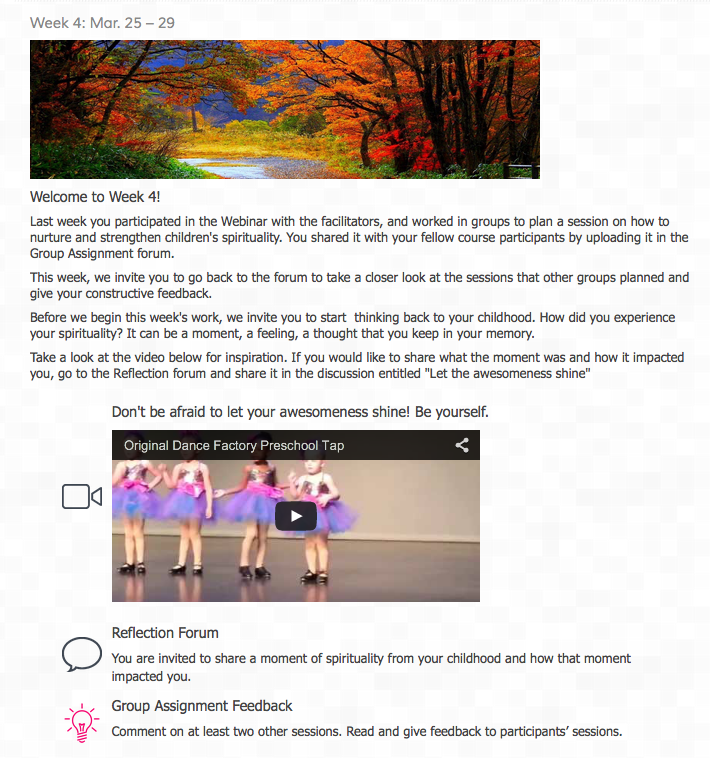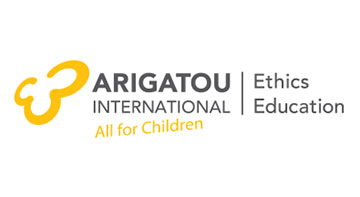The Arigatou International’s Ethics Education Initiative launched on 25 February an online course on Nurturing Spirituality in Children. The course is part of a series of online courses to complete the Advanced Training Accreditation of the Learning to Live Together Programme.
The course was designed for facilitators, previously trained on how to use the Learning to Live Together programme, and who are now implementing it systematically in their organizations, in order to strengthen their knowledge and skills on ethics education, and particularly on how to create spaces in their educational settings to nurture spiritualiy in children. Nurturing Spirituality in Children is one of the core concepts in the educational framework of the Learning to Live Together manual that permeates the whole programme.
This five-week course aimed to create spaces for participants to explore, discuss, and reflect about their own spirituality and ways to integrate spaces to nurture Spirituality when delivering Learning to Live Together sessions and other programs with children.
At the end of the course, participants acquired knowledge, concrete tools and approaches to support and nurture children’s innate ability for Spirituality in diverse contexts.
23 participants from Bhutan, Bosnia & Herzegovina, Brazil, India, Kenya, Mauritius, Namibia, Nigeria, Portugal, Romania, South Africa and Uganda completed the course and engaged in discussions, reflections, sharing and interactive activities. The course was facilitated by Ms Agneta Ucko, former Director of Arigatou International in Geneva and Co-chair of the Interfaith Council on Ethics Education for Children, and Ms Vera Leal, Ethics Education Program Officer for Arigatou International Geneva and official trainer on the Learning to Live Together programme.
Some of the reflections and learnings from the participants:
“Spirituality is a multi-dimensional term having different connotations for different individuals. It is understood within the contexts of one’s family, community,society, tradition, customs, culture and religion. But above all spirituality manifests itself even before birth and children are able to express this bare spirituality without the previously mentioned frameworks. This spirituality in children need therefore not only be preserved but also nurtured so that it grows and remains with them throughout their adult life. I think this is one of the most constructive ways to build a peaceful and harmonious world. All teaching activities should take the spiritual aspect of children into consideration.”
“This E-Learning course has opened my eyes and my heart towards spirituality. Hence forth, I would be careful enough to explain the differences between religion and spirituality. It was a wonderful experience.”
” I learned that it is more dificult to teach children about spirituality, than I thought, because we always have to be aware how we teach in such ways that we form critical thinking that will help them in life to discover themselves.”
Special thanks to the facilitators for the great contributions and to the participations for their time, committment and reflections.
